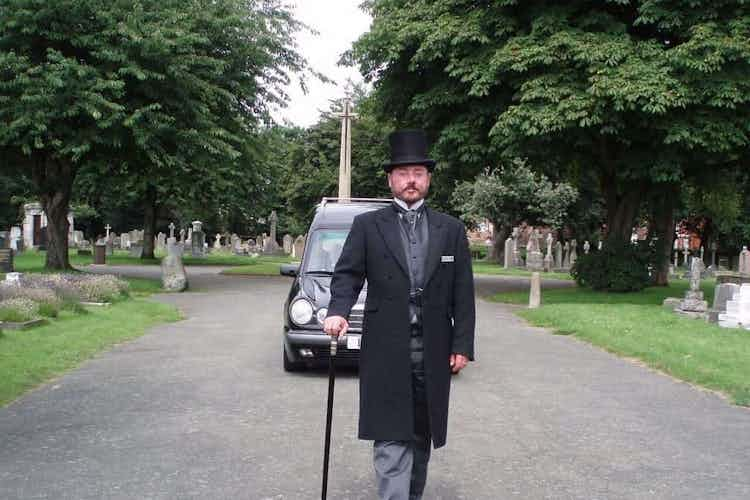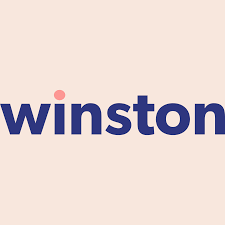Considering you’ll never see it; you can end up spending a pretty penny on your funeral. When you pay an average of £4,300 for a burial, you want to know where your money’s going. Most of your money will go to a funeral director, but what do they do?
There are few kids that dream of being a funeral director. Most of us are going to come into contact with at least one at some point – whether that be arranging our own send-off or organising the last goodbye for a friend or family member.
What can you expect to get from your funeral director? It's a varied role and it useful to know what you can ask of them and when you’re on your own. Let’s look at:
- How a funeral director deals with dead bodies.
- The practicalities of arranging a funeral.
- What a funeral director does on the day of a funeral.
- The processes a funeral director does after the funeral is over.
What does a funeral director do with a dead body?
Most people will die at home or in hospital. When you’re done with this life, a doctor will need to confirm you’re gone, and then the funeral director will take over.
Your body will get wrapped in sheets or put in a body bag and stretchered away into a van. You may be taken for a post mortem if there was something suspicious about your death, but let’s assume you had an uneventful end, and you head straight off to the funeral director.
Now you’re taking your long sleep, you can finally chill out as your body goes into the refrigerator at the funeral home. Depending on yours and your family’s wishes, this is the point you’ll get embalmed. Embalming is a process where the liquids and blood get drained from your body, and formaldehyde is pumped into you. This plumps up the body, and you'll become more recognisable to your friends and family.
Not everyone gets embalmed.
For example, you don’t get chemically preserved:
- If you’re being buried in a natural cemetery that doesn’t allow chemically treated corpses.
- If you're Muslim since the burial will usually happen within 24 hours.
- If you're Hindu because you'll be cremated typically within a day.
A body doesn’t have to be embalmed. It can be easier for people coming to visit your body, but if that won’t happen anyway, you can save up to around £200 on the service.
Once the chemicals are done with, your body will get dressed. Your family will usually send over clothes and any jewellery or makeup they might want you to be buried in. Your hair gets washed and styled, and your nose and ear hair will get a trim.
What does a funeral director arrange before the service?
One of the significant benefits of using a funeral director is that they deal with technical stuff when responsible people aren't ready for dealing with practicalities. There's paperwork like death registration that needs to be completed. A funeral director will help with this, although if copies are required, they’ll need to be organised by your executors.
Your funeral director will source your coffin. If you’ve pre-planned your funeral, you’ll already have chosen it, but the people in charge of arrangements can upgrade it if they want.
They also offer a place for people to go and view your body. If you want to leave anything in the coffin, such as keepsakes, photos, or phones, they will log this information before you add it in. A funeral director will also answer any questions and offer support for any viewings.
Other arrangements they’ll take care of include:
- Liaising with churches, cemeteries, crematoria, or venues to schedule a date and time.
- Place a death notice in local newspapers.
- Collect charitable donations if requested.
- Hold floral tributes that arrive ahead of the service.
During a funeral, what’s the role of a funeral director?
Once the day of your funeral rolls around, your funeral director has an important role. How involved they are will depend on your plans, and the people left behind.
Taking a classic, or traditional funeral as an example, a funeral director will:
- Supply a hearse and limousines to transport your body and chief mourners.
- Organise some or all of the pallbearers, if needed.
- Plan and print out the order of service.
- Source and supply music to the church, crematorium, or other venue.
- Manage floral tributes.
If you choose a non-religious or alternative funeral, these roles can be mirrored or adapted, within reason.
Once the funeral is over, does the funeral director do anything else?
After you're down in the dirt or have gone up in smoke, the funeral director you chose will still have a few small tasks. Communication between you and the crematorium when your ashes are ready and helping you select an urn can come after the service.
The funeral director can help disburse money for funeral services. Any charitable donations will be sent off to the charity you or your family choose. They may also be able to offer advice on headstones, which can take six to nine months before you can have one added.
What does a funeral director do?
The role of a funeral director is wide-ranging. Along with all of these practical elements, a lot of support and advice will be given. Trust that the funeral director will be there to guide your family through your final plans.
It can take a lot to bring a funeral together and requires lots of skills. It can be money well-spent to take the hassle of phone calls and coordination away from those who should be grieving for you.








